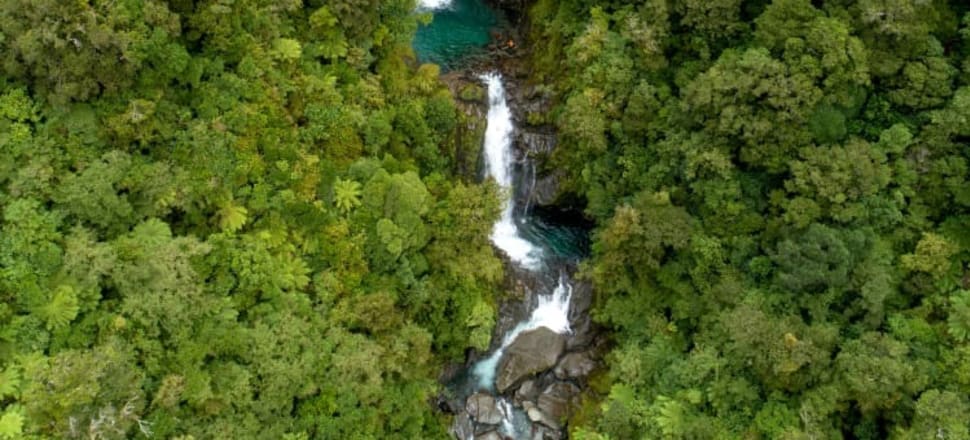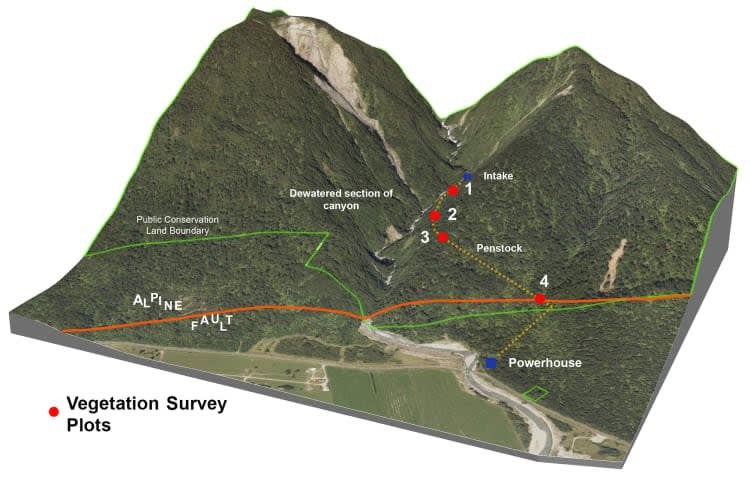
The case will test the value of recreation in conservation decision-making
Federated Mountain Clubs has been in court this week seeking clarification over a South Island hydro scheme being built on an internationally significant river for canyoning.
The group, which represents 99 backcountry recreational clubs around New Zealand, was in the Auckland High Court looking to resolve the meaning of a Department of Conservation concession for the Griffin Creek hydro scheme.
In 2011, Auckland-based Griffin Creek Hydro was granted a 30-year Department of Conservation concession for a 1.3-megawatt hydro-electric power scheme after four years of consultation.
READ MORE: * Legal threat over planned hydro scheme * Detail in pipeline application ‘staggeringly deficient’ * Māori and Pacific leaders propose legal personhood for whales at UN
A redesign and changes to the concession, including a pipe that could potentially handle 16 times more water than the earlier plan and allegations of mass removal of native bush, caused Federated Mountain Clubs to raise the possibility of legal action in 2021.
The Department of Conservation has previously told Newsroom the concession didn’t explicitly limit the water Griffin Creek Hydro Limited can take – just the size of the residual flow.
There are fears that water take could severely affect the flow level through the gorge, as well as concerns about damage to native bush through construction.
Griffin Creek Hydro director Rhys Morgan couldn't be reached by NewsRoom, but he had previously told Stuff that Griffin Creek Hydro was a small scheme, but one that provided much needed power supply for the West Coast.
He said wouldn't cut down any trees with high conservation values, and claims that it would cut down 1000 trees were wrong, and that many of the waterfalls suitable for canyoning were upstream from the scheme’s intake.
Federated Mountain Clubs had its day in court yesterday, attempting to clarify the meaning of the concession in relation to a limit of maximum water intake.
The judge reserved their decision in the case. When released, it will inform whether the group takes further legal action.
Griffin Creek is considered significant by Federated Mountain Clubs, and particularly member group NZ Canyoning Association, for its unique geography, high level of flow, and wilderness factors.

New Zealand Canyoning Association president Dan Clearwater said places like Griffin Creek were irreplaceable once altered or damaged. “Having a place in its pristine form is rare internationally, and that’s why so many people come to New Zealand to experience these places.
“The benefit of Griffin in particular is that it's a very high flow canyon, it's about the power of the water and the shape of the gorge which work together to make a really beautiful and really challenging place to visit and to safely move through.”
The journey through the gorge can take 8-10 hours, involving a mixture of abseiling and jumping into its many pools.
Canyoning at Griffin Creek only started after the 2011 hydro concession was granted.
Recreation
Informing its members of the court action at the weekend, Federated Mountain Clubs said the case could have important implications for the place of recreation in interpreting such concessions.
The Conservation Act 1987 requires the Department of Conservation to foster or facilitate recreation, but how much emphasis is placed on it, particularly a niche activity like canyoning, when it comes to decision-making is unclear.
Federated Mountain Club president Megan Dimozantos sees outdoor recreation and conservation as deeply intertwined. “You can't fully separate recreation from environmental outcomes or from biodiversity outcomes.
“You'll find that most of the people who are out there enjoying these activities in places like Griffin Creek are also the people who are out there also doing biodiversity work, they're the people that are protecting these places."
Dimozantos said recreation in wilderness places was really important in encouraging people to protect them in the future as well.
“It's definitely enshrined in law; the Conservation Act requires that recreation be fostered so I would certainly hope that it is taken into consideration with decision-making.
“I couldn't comment on whether it is or not, I'm not one of the people that are making these decisions, but yes, certainly it is enshrined, and it's required to be taken into account.”







